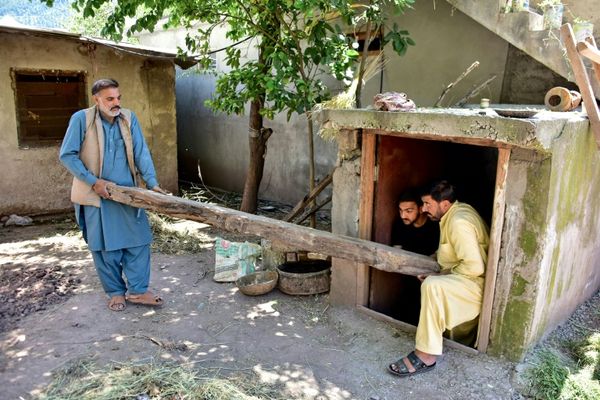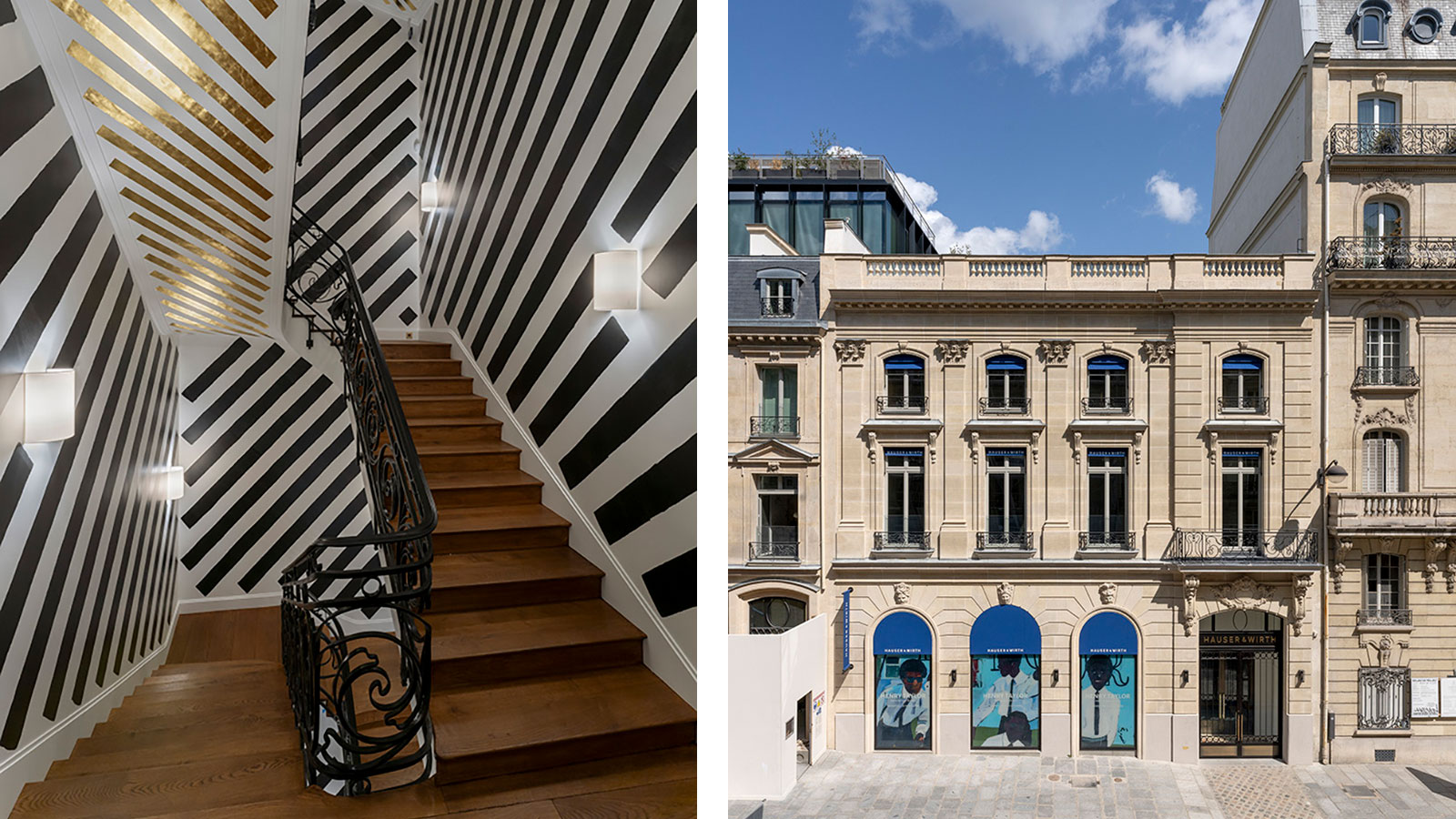
The Laplace story begins in 2004, when the Swiss art collector Ursula Hauser wanted to turn the stables of her Mallorca residence into guesthouses. Her New York architect, Annabelle Selldorf, was overbooked. One of Selldorf’s project managers, Luis Laplace, asked to do it independently, prodded by his life partner, Christophe Comoy. The move was right; the project sparked an enduring relationship with the client and the creation of the Laplace architecture agency, headed by Laplace and Comoy.
The two met at a Christmas party in Manhattan in 2001. The former was an architect from Argentina, the latter a French lawyer preparing for Columbia Business School. Separately they were talented, but together they were unstoppable. ‘My model was Yves Saint Laurent and Pierre Bergé,’ says Comoy.
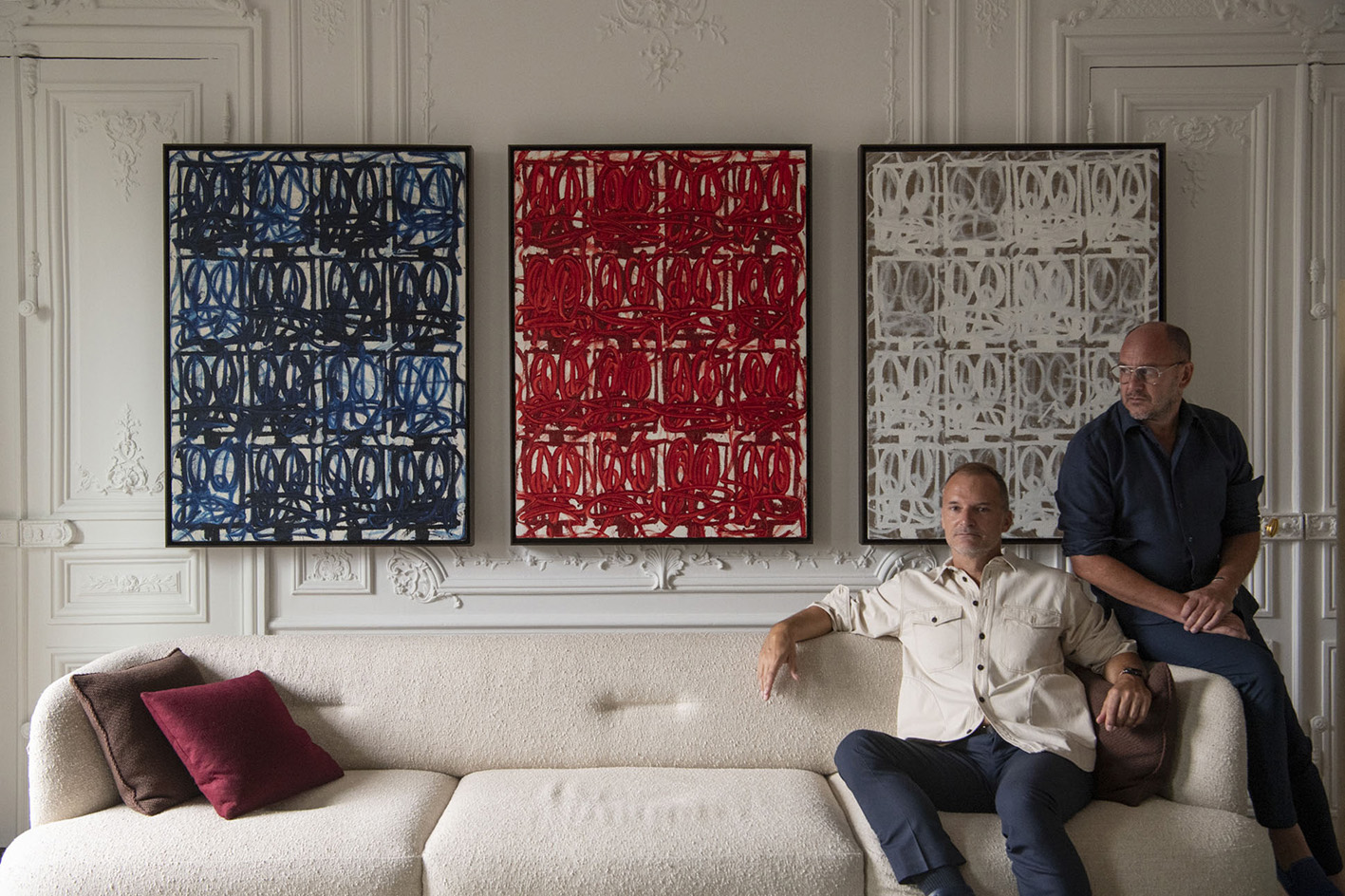
Laplace: the practice's origins
Since their first projects were in Europe, they left New York in 2004 to establish their agency in Paris. Laplace, who didn’t speak French, recalls: ‘When we arrived, I thought – what a terrible mistake.’ But he absorbed the best of the city and adapted. ‘There’s enormous respect for artisans here. On weekends, I visited antiques dealers and spent hours while they told me stories about their wares.’
Laplace has since developed a reputation for masterful renovations of historical buildings. This autumn, the agency unveiled Hauser & Wirth Paris, the latest in a string of locations it has restored for the global art gallery, including the London flagship, an 18th-century farmhouse in Somerset, and an art centre in Menorca. Marc Payot, Hauser & Wirth’s President, says, ‘Luis Laplace is very strong at turning an existing building into a great space for art, but keeping the spirit.’
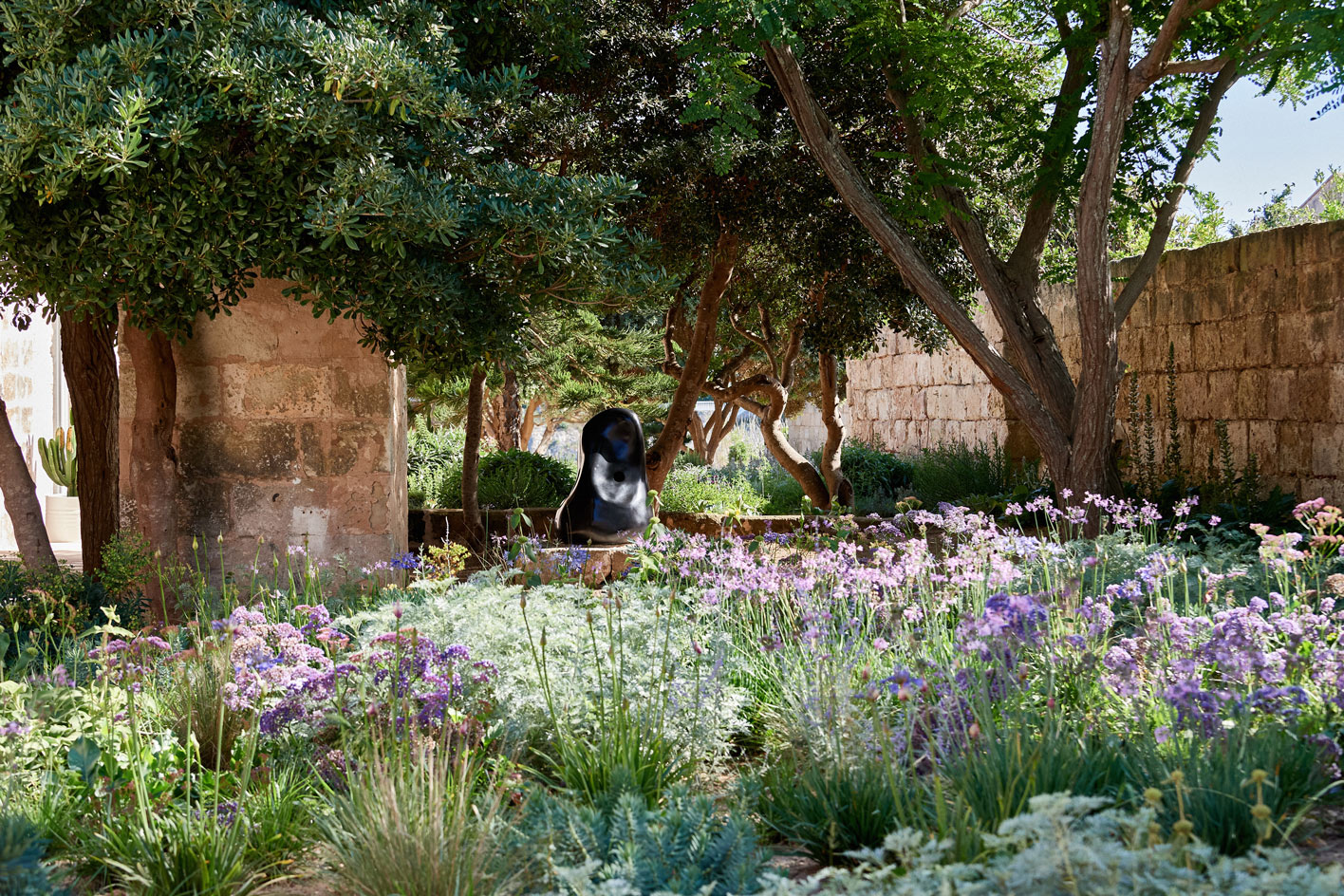
Designing Hauser & Wirth Paris
The Paris gallery, in an 1877 hôtel particulier near the Champs-Elysées, confirms his skill. The four-story property’s neoclassical façade survived the years, but the interior had been chopped up into smaller rooms. Removing a mezzanine, non-supporting walls, and a central staircase, Laplace created a wow-worthy six-metre-high ground-floor exhibition space. He identified with the sculptor Eduardo Chillida (whose museum, in a 16th-century Spanish farmhouse, he renovated in 2019). ‘Chillida worked his ceramics with mass and emptiness – the space that remains. Ours was the same approach. There was a lot of mass.’
For circulation, he annexed a staircase that belonged to a neighbouring building. British artist Martin Creed painted the stairwell in thick parallel stripes, in colours suggested by Laplace to reflect Parisian codes: gold on the ceiling like gilding, black on the walls to echo the wrought iron railing.
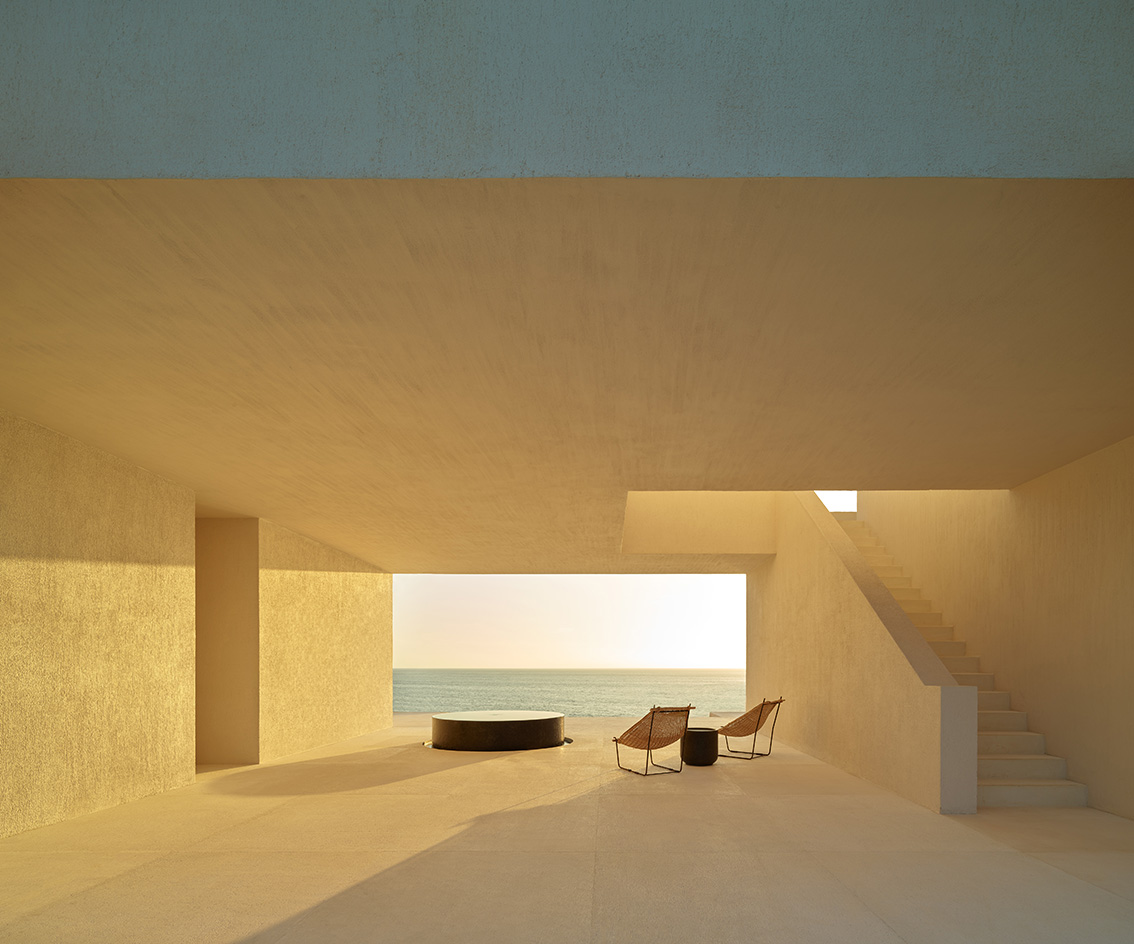
The Laplace agency works almost exclusively for clients in the art world, whether sellers, collectors, or artists (such as Cindy Sherman, for whom they renovated a Paris pied-à-terre). A majority of their projects are residential. One of the first things they do is see a client’s art collection, exploring how to integrate it into the final result. In Europe, they regularly come across collectors of museum-quality pieces living in stately homes that have been disfigured over the years. Comoy says: ‘We explain to clients that it’s in their interest, their art de vivre, to think about the project globally: architecture, interior, design, and art.’
Laplace’s style is eclectic and not necessarily recognisable, aside from a complexity of colour combinations and an abundance of objects – a typical project might have 10,000 references. He decorates with a mix of vintage pieces and original furniture of his own design, either one-off pieces or else extremely limited series. At times, the agency collaborates with contemporary artists, such as Rashid Johnson, who created a mosaic floor for the Mount St. Restaurant in London. Laplace loves helping artists adapt their work to the technical constraints of his profession. ‘Architects can be authoritarian, and make artists feel like they’re boxed into a corner,’ he says. ‘I speak their language.’ Comoy concurs: ‘Luis is hypersensitive and so are artists, so they get along well.’
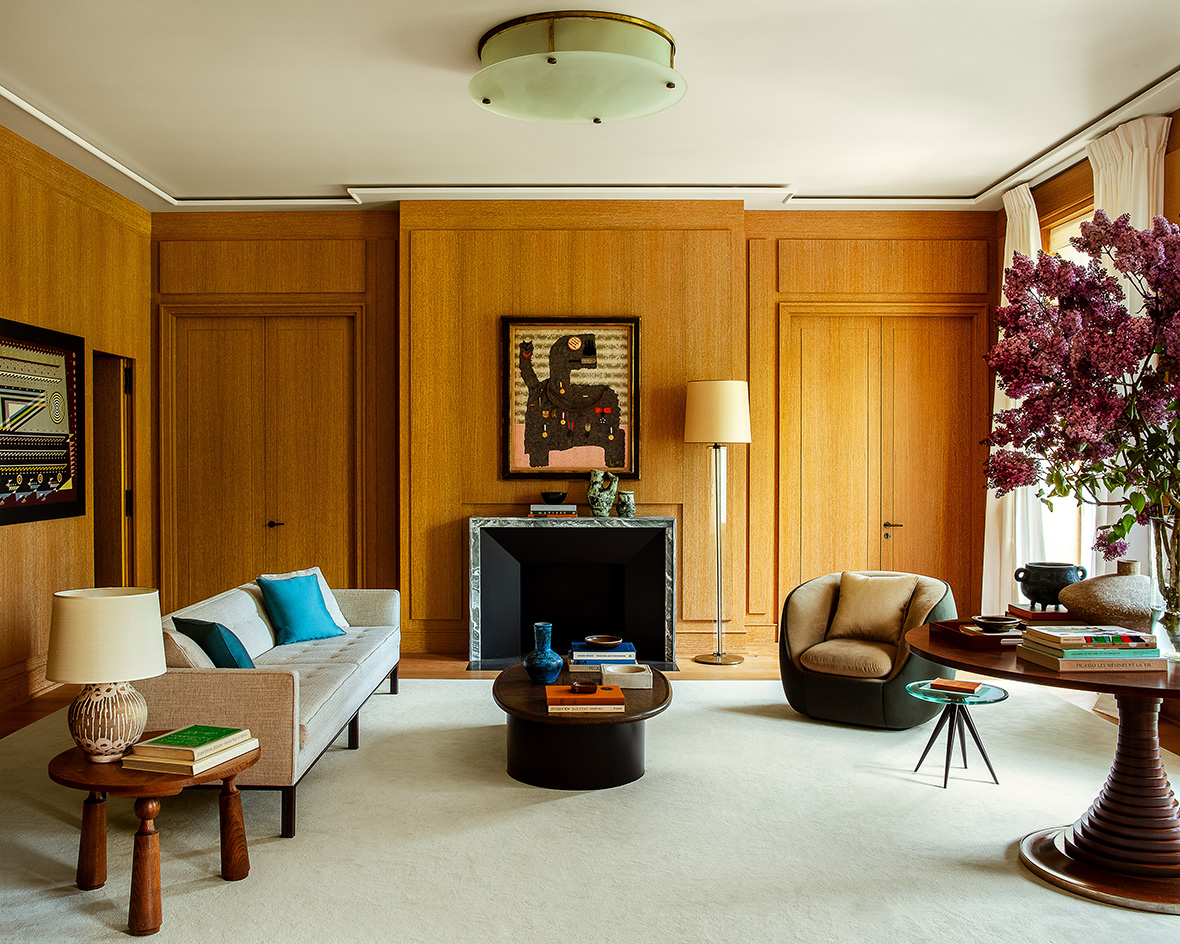
Laplace: current works
Currently, Laplace is designing a residential swimming pool with a painted bottom by artist Mary Heilmann. And though he says he didn’t grow up in an artistic family, his mother’s pool in Buenos Aires had a bottom painted by his grandfather, in a motif he later realised was copied from a Jean Arp painting. (The same grandfather opened one of the city’s first civilian airports, and secretly flew several targets of the military junta to safety.) Laplace’s earliest memory of noticing contemporary art was around age 13, when he used to wait hours for his mother to pick him up after school, and passed the time at a nearby bookstore. One day, he was struck by a photo in a book about Robert Mapplethorpe, of an elderly woman with a phallus under her arm. It was Louise Bourgeois. ‘I thought: she could be my grandmother!’
Now his collection of art books undoubtedly surpasses that of his childhood libreria. When they’re not travelling, Laplace and Comoy spend Saturdays in bookstores and Sundays scouring the Saint-Ouen flea market for furniture and objects. For the past 15 years, they have lived and worked on Paris’s elegant Place Saint-Georges, in a 19th-century apartment they rent above the perpetually-expanding offices of their agency. (Their staff numbers around 50 employees.)
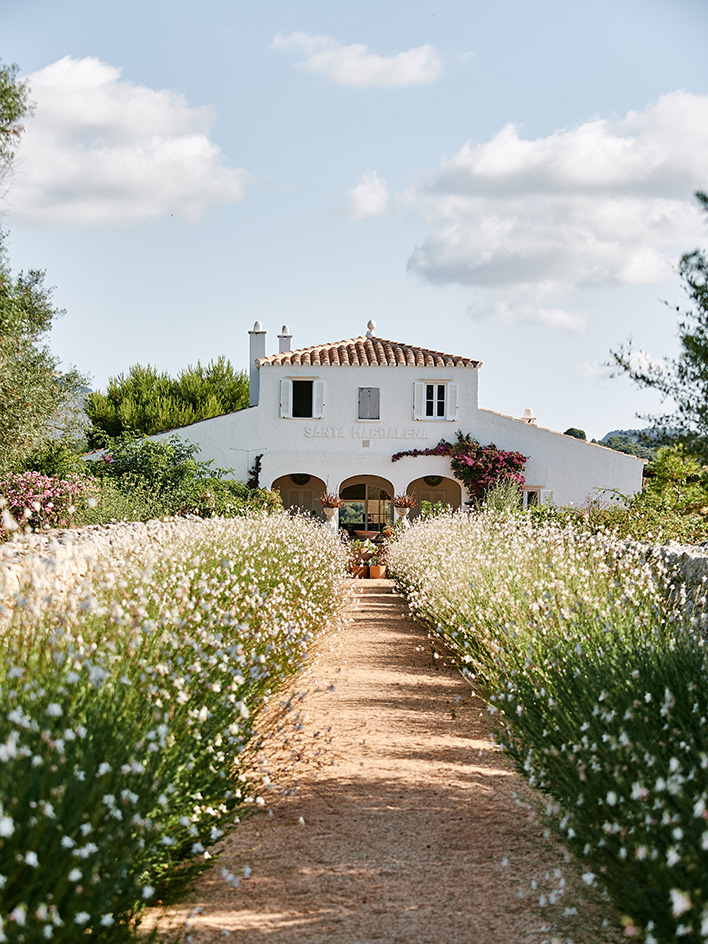
Both their private and professional spaces are overflowing with treasures: a three-legged Jean Touret lamp; a Carlo Scarpa sofa; a Laplace burl wood bar cabinet; artworks by Paul McCarthy, Pipilotti Rist, and Roni Horn; pre-war Lalique vases; a Jacques Adnet vellum lamp that belonged to Andy Warhol; a Rick Owens chair; an antique butcher’s cleaver; several 1960s M. Vuillermoz polyhedron bar cabinets (they buy and restore every one they come across); and much, much more. ‘We’re not minimalists,’ notes Laplace dryly. Many of these pieces will end up in clients’ homes—though the duo would prefer not to part with their incredible selection of ceramics.
Recently, they rented a space nearby for Laplace to work on his own ceramics. They are also spreading their wings to the Left Bank, with the purchase of L’Hôtel Samuel Bernard, an 18th-century hôtel particulier behind the Maison Deyrolle taxidermy shop. The once-magnificent mansion had been turned into offices, all the decorative elements and noble materials removed. They plan to transform it into a ‘lieu de vie’ for showing art and design, and hosting collaborations and dinners. ‘We will recreate a universe, a contemporary vision of the 18th century,’ says Comoy. It seems the building was just waiting for them to come along.
A version of this article appears in the February 2024 issue of Wallpaper* – dedicated to the Wallpaper* Design Awards 2024 – available in print, on the Wallpaper* app on Apple iOS, and to subscribers of Apple News +. Subscribe to Wallpaper* today





